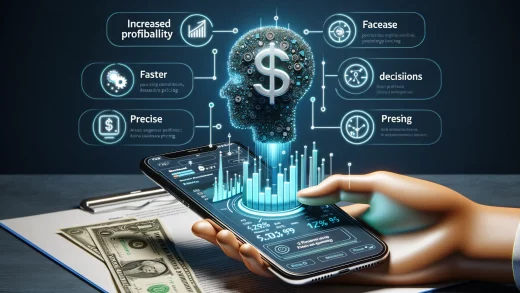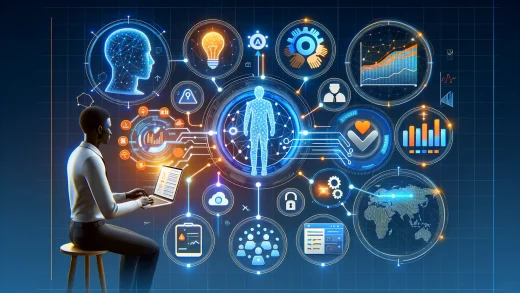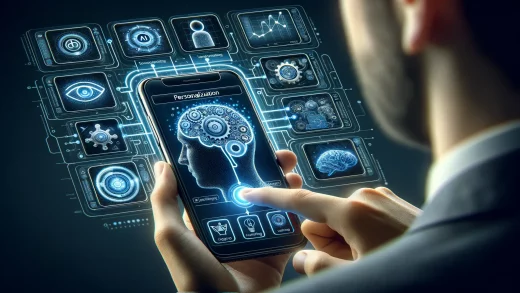Introduction to AI in Gaming
Why AI Feels Like Magic in Gaming
Step into the world of gaming and you’ll find AI whispering its brilliance behind every corner. It’s like having a silent co-pilot that transforms mundane gameplay into a dynamic, living experience. Imagine playing an open-world RPG and encountering a villager who actually remembers your last conversation. That sense of connection? You can thank AI-driven NPCs (Non-Player Characters) who are leaps ahead of repeating the same tired dialogue loops.
AI doesn’t just stop at smart characters, though—it’s the architect of unpredictability. Gone are the days when enemies moved like they were glued to invisible tracks. Now, they’re learning from your strategies, adapting as if they had minds of their own. It’s part thrill, part frustration—like playing chess with someone who can suddenly master your every move!
- Storylines evolve uniquely based on player choices, making experiences personal.
- Procedural generation ensures no map or level is ever the same twice.
AI: The Secret Sauce Behind the Scenes
But it doesn’t end there. Even things you don’t notice outright—like how smoothly environments render or how matchmaking pairs you with the perfect partner—are courtesy of Machine Learning Algorithms. These behind-the-scenes geniuses process everything: your playstyle, behavior, and preferences, crafting worlds that feel tailor-made just for you.
Gaming with AI is no longer just pressing buttons; it’s stepping into a space where worlds anticipate your desires and challenges morph according to your skill level. Have you ever felt like a game “just gets you”? That’s not luck—it’s innovation.
How AI is Transforming the Gaming Industry
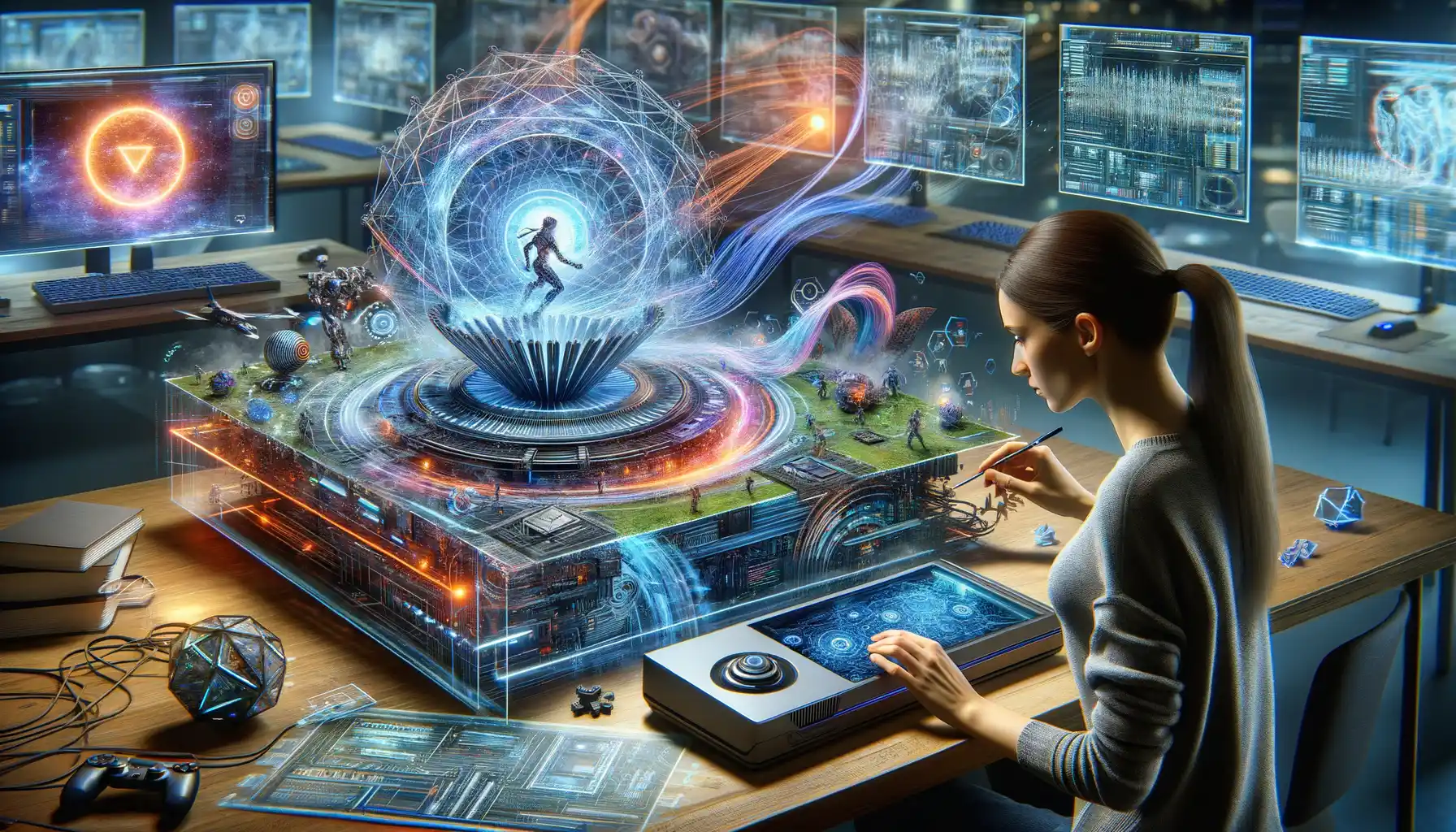
The Magic of Intelligent NPCs
In the gaming universe, you’re no longer just walking through a world filled with lifeless, scripted Non-Playable Characters (NPCs). Thanks to AI breakthroughs, NPCs have evolved into dynamic entities that can actually *think*—well, almost. Picture this: you’re playing an RPG, and instead of repeated dialogues like a broken record, the shopkeeper reacts to your choices, negotiating prices, maybe even throwing shade if you’ve wronged their village. This is the power of machine learning algorithms enabling NPCs to adapt, learn, and respond in unpredictable ways.
But it doesn’t stop there. AI now molds these game worlds into living, breathing ecosystems. Weather changes, crowds react organically to events, and enemies outsmart you by predicting your tactics. It’s like having a chess opponent who reads your mind—but cooler, with dragons.
Immersive Gameplay Powered by AI
Gaming is becoming personal, almost eerily so. AI-driven systems analyze how *you* play: your strengths, your hesitations, your habits. Here’s what they can do with that info:
- Generate procedurally infinite levels tailored to challenge you—no cookie-cutter designs here!
- Create adaptive soundtracks that shift based on tension or your mood.
- Adjust difficulty levels dynamically, ensuring frustration stays minimal while the excitement stays sky-high.
Take games like Hellblade: Senua’s Sacrifice. Its AI carefully channels mental health challenges into gameplay, making every moment heart-wrenchingly real. Gaming isn’t just entertainment anymore—it’s a personalized journey where every twist feels like it was written for you. The line between player and protagonist? Blurring fast, thanks to AI.
Key Trends Shaping the Future of AI in Gaming
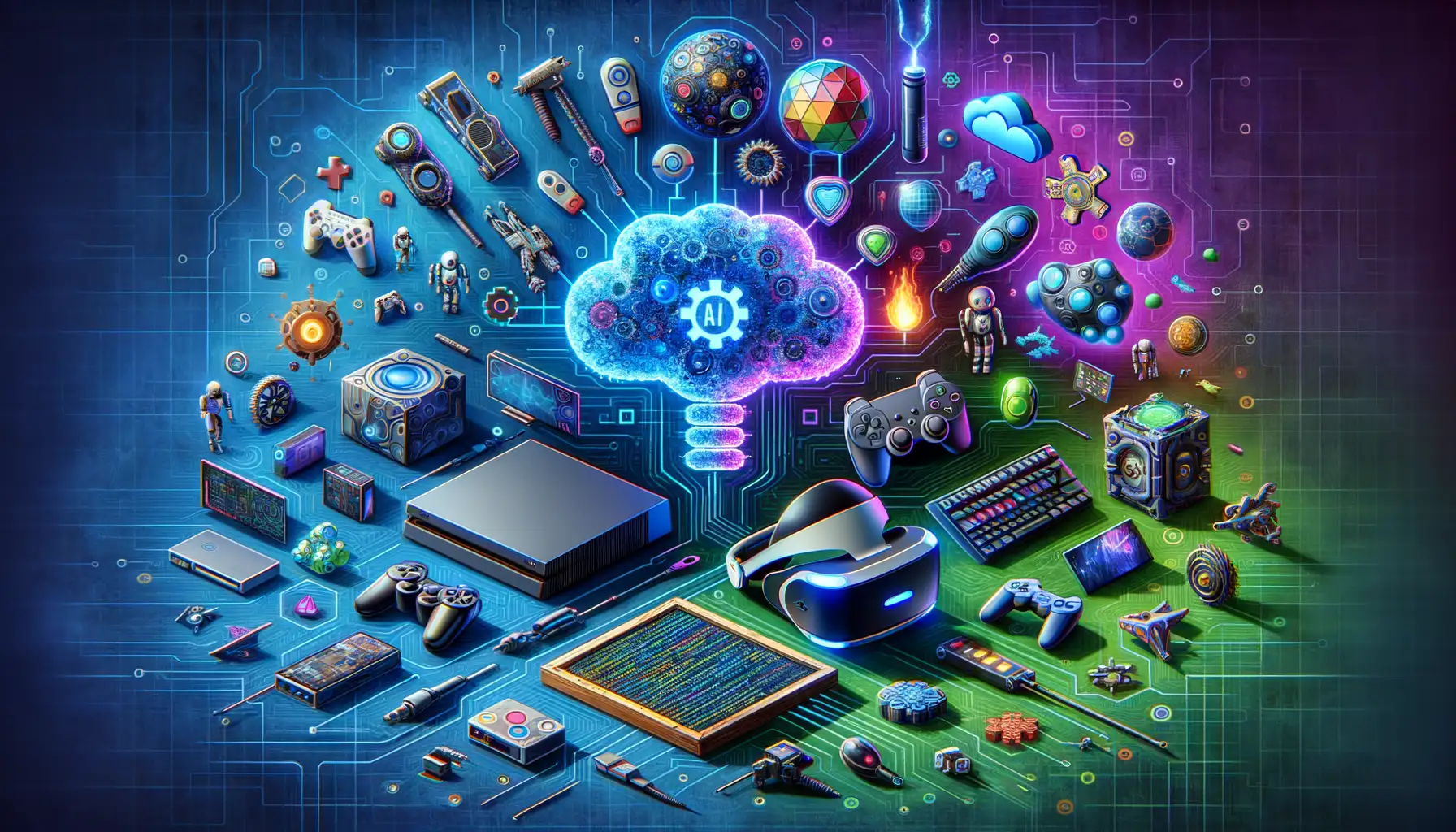
AI-Driven Personalization That Feels Like Magic
Imagine logging into your favorite gaming app and feeling like the game knows you better than your best friend. That’s the power of AI-driven personalization, and it’s reshaping how we connect with games. Through advanced machine learning algorithms, gaming apps can now tailor experiences down to the smallest detail.
Think of it this way: if you’re an explorer at heart, AI will nudge you towards immersive quests, hidden treasures, and expansive worlds. If you’re more competitive, expect matchmaking systems that pit you against players who offer just the right level of challenge. This isn’t cookie-cutter customization—it’s dynamic, evolving, and deeply intuitive.
Netflix-style recommendation engines are also making their way into gaming, suggesting in-game purchases or story arcs based on your habits. The result? Games feel less like products and more like living, breathing worlds built exclusively for you.
- Dynamic storytelling: Adaptive narratives that change based on your choices and playstyle.
- Emotion tracking: AI analyzing facial expressions and sentiment to enhance immersion.
Real-Time Content Creation: The Ultimate Game Changer
Picture this: you’re in a medieval kingdom, and suddenly, the villain appears—but wait! He’s not pre-scripted. With real-time content creation powered by AI, characters, environments, and challenges are generated on-the-fly, making every encounter one-of-a-kind.
Procedural generation is taking over. Developers don’t need to handcraft every dungeon or dialogue anymore. Instead, AI models build them dynamically, ensuring worlds twice as vast and infinitely varied. This means no two adventures will ever feel identical, even if millions of players are exploring the same universe.
But it’s not just about scale; it’s about relevance. These AI systems adapt to YOU. Struggling in a platformer? The AI might subtly tweak levels to keep frustration at bay. Breezing through puzzles? Expect more brain-busters ahead. It’s like having an invisible, hyper-intelligent dungeon master tailoring the universe just for your skill level.
The future is here, and it’s thrillingly unpredictable—exactly how gaming should be.
Challenges and Ethical Considerations in AI Gaming
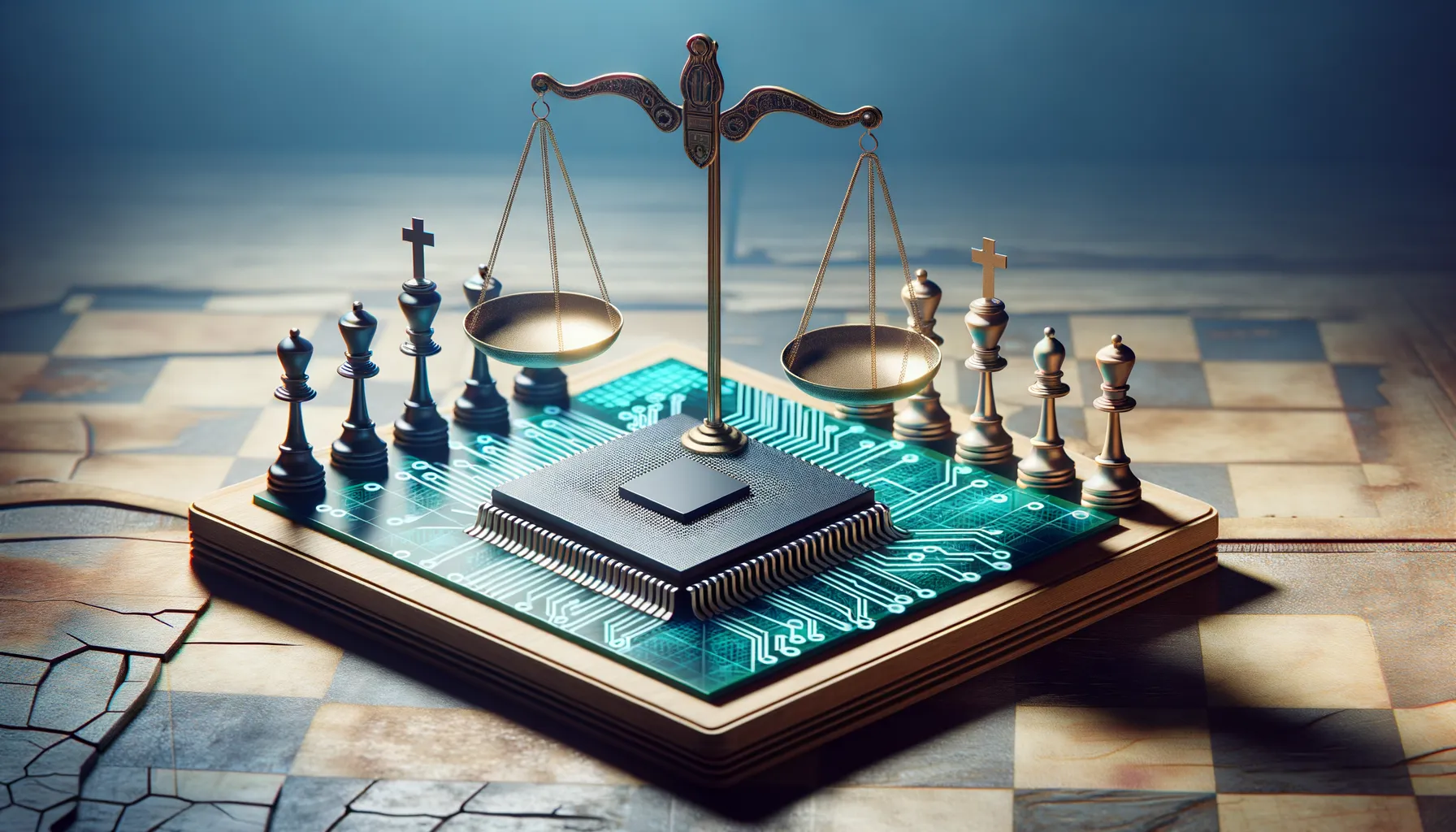
Where Innovation Meets Responsibility
Gaming with AI feels like stepping into a world where the rules rewrite themselves in real time. But behind every mind-blowing NPC interaction or adaptive storyline lies a tangled web of challenges and ethical dilemmas. Let’s pull back the curtain on what’s really happening—and why it matters.
For starters, there’s the big one: bias in AI training data. Imagine an RPG where AI-driven characters act unfairly based on flawed datasets. That accidental favoritism? It doesn’t just ruin the immersion; it can reflect real-world stereotypes, showing how carelessly designed systems fail to respect diversity.
Another hot topic is privacy and data usage. Ever wondered how your gaming avatar runs like it’s reading your mind? Well… it sort of is. Your behavior, decisions, even how long you hesitate to make a choice—it’s all being tracked. Sure, this creates smarter systems, but at what cost? Players deserve transparency about how their data is being used and stored.
Tread carefully, AI developers—this playground has consequences.
Conclusion and Future Outlook

Unleashing the Next Chapter of Gaming
The future of gaming isn’t coming—it’s already peeking through the cracks, ready to rewrite the playbook. Imagine this: an RPG where the characters not only respond but evolve based on how you treat them, or a strategy game that adapts its difficulty not just to challenge you—but to **teach you**. That’s the world we’re walking into, powered by advanced AI.
What excites me most is the unpredictability. AI may soon turn our games into living, breathing worlds where no two adventures are ever the same. Picture waking up in a game tomorrow and discovering the NPCs you met last week now remember your choices—and hold grudges! Or better yet, a horror game that learns your fears and tailors its scares to leave you truly speechless.
But there’s more on the horizon:
- Hyper-personalized games fueled by real-time behavior analysis
- MMORPGs with infinite questlines, thanks to procedural content generation
- AI acting as your real-time co-op partner, filling gaps in multiplayer gameplay
A Collaborative Future Between Players and Technology
As thrilling as these innovations sound, there’s something profoundly human about where this is heading. The relationship between gamers and AI isn’t replacing creativity—it’s amplifying it. Developers bring their vision; players add their personal flair; AI bridges the two, creating dynamic narratives and experiences that feel almost otherworldly.
This isn’t just tech evolution—it’s co-creation at its finest. Who knows? In a few years, your favorite in-game companion might not just be code—it could feel like a friend.

